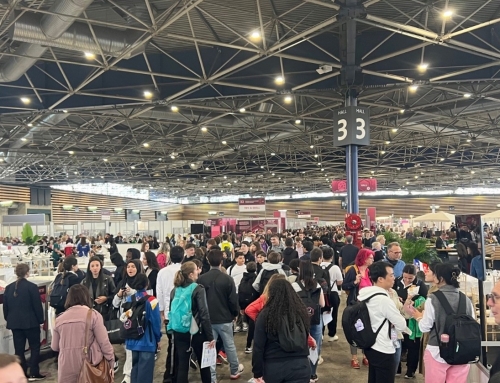A robust talent pipeline insures against skills shortage
8 October 2019 –The Global Apprenticeship Network Australia (GAN)’s Executive Director, Gary Workman, is in Indonesia where he will speak at the 1st Indonesia Vocational Education & Training Summit (IVETS 2019) on Thursday. With a focus on lessons learnt in Australia, Mr Workman’s speech is titled ‘Accelerating the Acquisition of Skills and Capabilities of All Segments of the Workforce to Build a Robust Talent Pipeline’. The event is for key Indonesian industry players including policy makers, stakeholders and VET professionals to discuss and plan the future of Indonesia’s TVET. The event is a platform to explore new business opportunities in the vocational education sector.
Mr Workman said, “Globally most countries have issues with skills shortages and creating apprenticeships. We want to highlight the important role they play for employers and students. Young people receive an income as they prepare for the job market. They learn critically important core skills such as problem solving, teamwork and communication. Apprentices also gain valuable job experience, something that prevents other graduates from securing their first job.”
Mr Workman will highlight the Swiss school to work model, which is considered global best practice. With a low unemployment (less than 3%), employers drive the training and skills needed to support the economy. 65% of secondary school students undertake apprenticeships and their academic pathways between 15-18yo at the same time. Swiss apprentices have 90%+ completion rates and there are pathways onto university and further education and employment. This includes advanced manufacturing, financial services and construction sectors.
Mr Workman added, “In Australia, we are experiencing high youth unemployment rates in places, yet apprenticeship roles sit vacant. We need to educate and attract students, parents and schools into apprenticeships. Experience can be gained across a wide range of sectors and as they progress in their careers and many of these professions will require a university education. It’s more important to secure a solid career pathway than to simply chase a degree where there is no guarantee of a job when the schooling ends.”
Mr Workman will also speak about Australia’s vocational education and training (VET) system also suffering from a 50% completion rate, which GAN attributes to lack of support and youth not making informed choices before they start. The most critical time for apprenticeships are the first year. The most successful apprenticeship model in Australia is one that includes Group Training Organisations or GTOs. GTOs connect training organisations and host businesses to help train apprentices. These models give the most support and have the highest successful apprenticeship outcomes.
Media Enquiries: Amy Leiper: 0414 643 446 or amy.leiper@thoughtbroker.com.au





